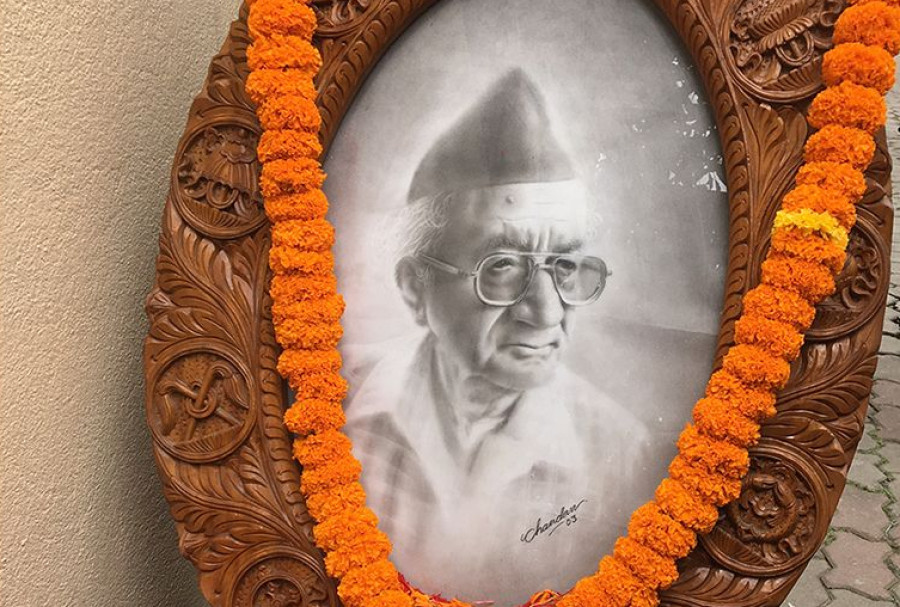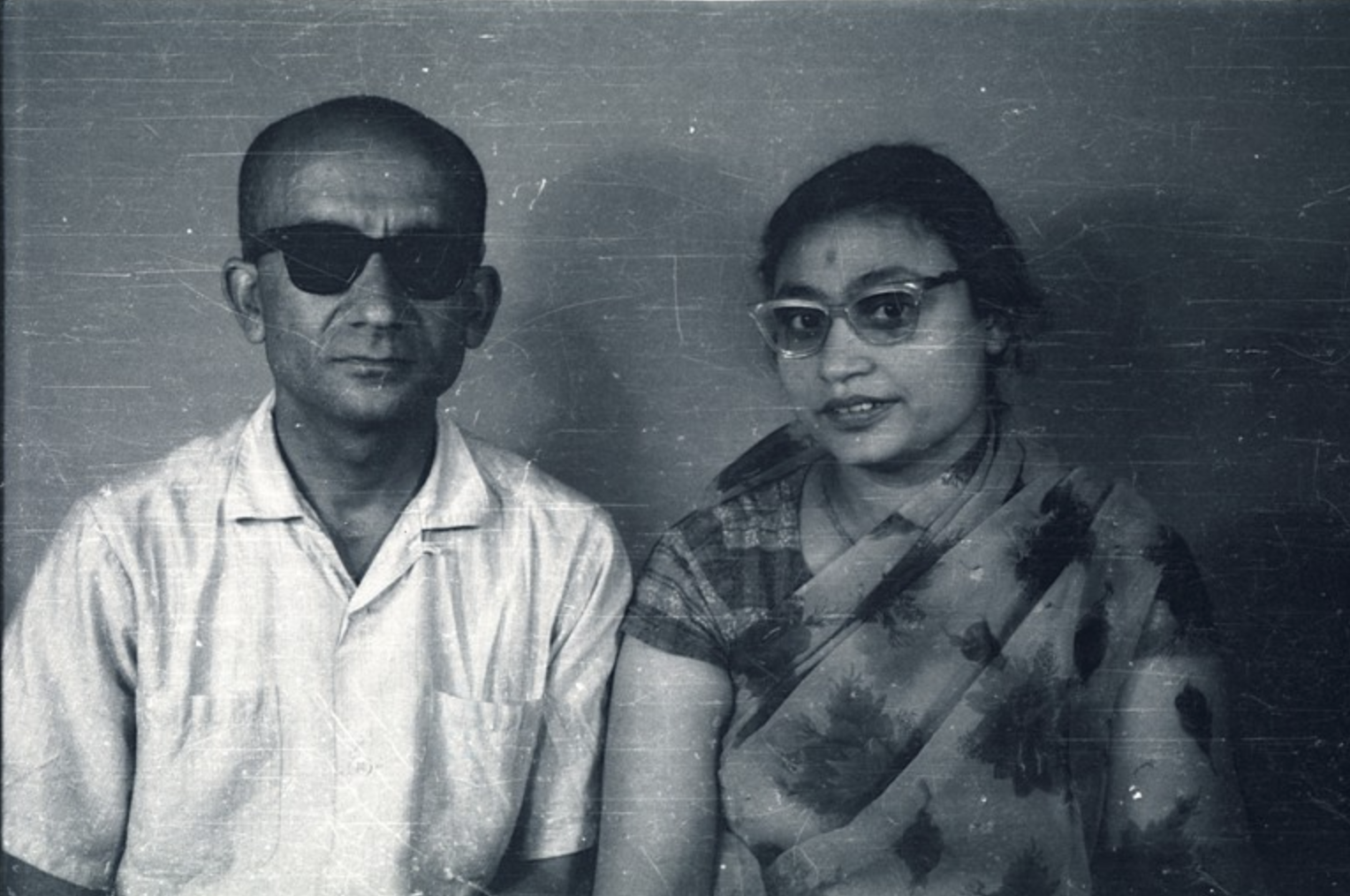Books
Madan Mani Dixit, a pioneering writer and journalist, dies at 96
He was jailed multiple times for his association with the Communist Party during the Panchayat regime, and it was during those incarcerations he wrote his award-winning novel.
Alisha Sijapati
Madan Mani Dixit, renowned journalist and litterateur who was best known for his Madan Puraskar-winning novel Madhavi, died on Thursday. He was 96.
Dixit is remembered by his friends and contemporaries as someone with a warm demeanour and the ability to crack a joke with a straight face. He was fondly known as ‘maadsaap’ by his contemporaries and friends. The name stuck when he was headmaster of the Tri-Juddha High School in Birgunj where he often dressed in a starched dhoti and kurta.
An alumnus of Banaras Hindu University, where he obtained his doctorate in philosophy, Dixit was always interested in Vedic literature and philosophy. He was also well-versed in the Sanskrit language. Apart from ancient Vedic literature, Dixit was also heavily influenced by Russian and modern Indian literature, according to writer Dhurba Chandra Gautam. In Nepal, he preferred writers who were rational but also philosophical in their writings. He was particularly fond of Balkrishna Sama’s prose epics Prem Pinda and Chiso Chulo.
Like many others, Dixit started out as a journalist and was editor-in-chief of the fortnightly newspaper, Samikshya, for 20 years. Abhi Subedi, writer and professor, said that he would eagerly wait for Samikshya to arrive at the nearest store when he was young.
“His news had so much depth and analysis that made it worth a read,” Subedi said.
According to Subedi, he and his colleagues often compared Dixit's persona with that of Rustom Kurshedi (RK) Karanjia, editor of the Indian weekly investigative newspaper, Blitz.
“The attempt to bring reality to the public through their news was an uncanny resemblance between the two editors,” said Subedi.

Dixit admired communist revolutionaries, most notably Fidel Castro, according to Subedi. He was associated with the Communist Party of Nepal for 35 years and this connection would land him in jail multiple times. It was his numerous incarcerations that he led him to write Madhavi, which won him the prestigious Madan Puraskar in 1982. Dixit wasn’t too pleased with his win, and in an interview published in 2017, said: “While Madhavi may have literary merit, Meri Nilima’s prose is superior.”
Madhavi, however, remains a widely popular book, with many considering it a classic of Nepali literature.
“Madhavi presents contemporary reality through the eyes of Madan ji and his experience in prison,” said Subedi.
Apart from Madhavi, his most famous works include Meri Nilima, Bhumisukta, and the short story, Kasle jityo kasle haryo?
In the later years of his life, Dixit was appointed as vice-chancellor of the Royal Nepal Academy, an honour bestowed on him by then prime minister Girija Prasad Koirala for his contributions to literature, from 1994 to 1999.
Dhurba Chandra Gautam recalls Dixit as a voracious reader and very disciplined man. Gautam had known Dixit ever since the latter’s days as a headmaster in Birgunj. Gautam was Dixit's student and a friend of his eldest son, Binod.
“When I was a student in Birgunj, Madan sir was on the verge of completing his PhD and was not yet an accomplished writer,” Gautam said. “As our interests were similar, he often encouraged me to read and write.”
Dixit was instrumental in Gautam’s own literary career, with Dixit’s stern father-like nature manifesting in constant suggestions and constructive criticism.
“He was the best person in the field and it’s unlikely that the country will have a great journalist or a writer of his stature,” said Gautam.
Veteran politician Bishwa Bandhu Thapa, now 92, agrees with Gautam.
“Dixit’s criticisms about the Panchayat system made our work a little difficult but also made us stand on our toes at all times,” said Thapa, who was home minister during the Panchayat era.
Though they disagreed politically, Thapa recalls developing respect for Dixit after reading Madhavi, which Thapa calls a “masterpiece.”
Dixit is survived by his wife and four children.




 21.79°C Kathmandu
21.79°C Kathmandu










